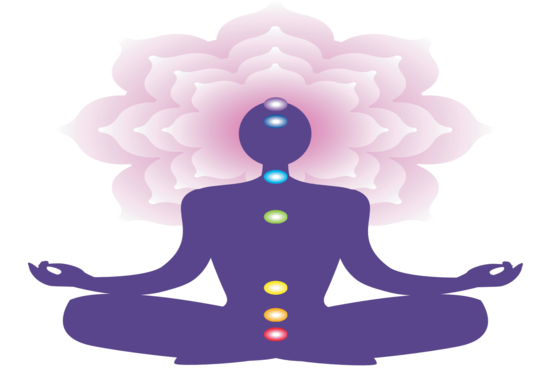Discover tranquility through meditation. Cultivate mindfulness, reduce stress, and find inner peace. Embrace the art of self-reflection and elevate your well-being. #Meditation #Mindfulness #InnerPeace
Introduction:
Meditation, an ancient practice that has withstood the test of time, holds the key to unlocking inner peace, clarity,
and balance in our modern, chaotic lives. This timeless art has been embraced by people from various cultures and backgrounds, offering a path to mindfulness and self-discovery. In this blog, we will delve into the profound benefits of meditation and explore how it can transform our minds and well-being.
Understanding Meditation:
Meditation is a practice that involves training the mind to focus on the present moment, increasing awareness, and fostering a deep sense of tranquility. It comes in various forms, including mindfulness meditation, loving-kindness meditation, and transcendental meditation. Regardless of the technique, the essence remains the same: to be fully present and embrace the now.
The Science Behind Meditation:
Numerous scientific studies have unveiled the remarkable impact of meditation on our mental and physical health. Regular meditation can reduce stress, anxiety, and depression. It also enhances emotional well-being, improves concentration, and boosts creativity. Additionally, studies have shown that meditation can positively affect the brain's structure, promoting increased gray matter density in areas associated with learning, memory, and self-awareness.
Embracing Mindfulness:
One of the fundamental aspects of meditation is mindfulness, the art of being fully aware of our thoughts, feelings, and surroundings without judgment. Mindfulness helps us break free from the shackles of our racing thoughts and allows us to embrace each moment with openness and acceptance.
The Path to Inner Peace:
In our fast-paced lives, finding inner peace can seem like an elusive quest. However, meditation provides a sanctuary within ourselves, a place where we can retreat to find serenity amidst life's storms. By regularly engaging in meditation, we can cultivate a sense of calm and balance that resonates in all aspects of our lives.
Unlocking Creativity:
Meditation has a profound impact on our creativity. When we silence the noise within, our minds become more receptive to fresh ideas and innovative solutions. Many renowned artists, writers, and thinkers credit meditation for unlocking their creative potential and igniting their imagination.
Cultivating Compassion and Empathy:
Loving-kindness meditation, a form of meditation that focuses on generating feelings of compassion and empathy, fosters a deep connection with ourselves and others. Through this practice, we develop a genuine sense of care and understanding for those around us, nurturing a more harmonious and empathetic society.
Integrating Meditation into Daily Life:
Incorporating meditation into our daily routines doesn't have to be complicated or time-consuming. Even a few minutes of mindfulness practice each day can yield significant benefits. Creating a dedicated space for meditation and setting aside time, whether in the morning or before bedtime, can make the practice more sustainable.
Meditation is a powerful tool that grants us access to the depths of our minds, enabling us to discover our true selves and connect with the world on a profound level. By embracing this ancient art, we can navigate the challenges of life with greater resilience, compassion, and clarity. Whether you are a beginner or an experienced practitioner, the journey of meditation is ever-evolving and offers boundless rewards for those willing to embark on it. Embrace the art of meditation, and you will uncover a world of peace and serenity that resides within you.
While meditation has been practiced in various forms by different cultures and civilizations throughout history, it is widely believed that the roots of formal meditation, as we know it today, can be traced back to ancient India.
India has a rich spiritual and philosophical heritage, and meditation played a significant role in the spiritual practices of ancient Indian traditions. The earliest known written records of meditation can be found in the ancient Indian scriptures known as the Vedas, which date back over 5,000 years. The Vedas mention various meditation techniques and practices aimed at achieving spiritual insight and self-realization.
One of the most influential texts on meditation in ancient India is the "Yoga Sutras" attributed to the sage Patanjali, dating back to around 200 BCE. This text outlines a systematic approach to meditation as a part of the broader system of yoga, which encompasses physical, mental, and spiritual disciplines.
Buddhism, which originated in India around the 6th century BCE, also emphasized meditation as a central practice for attaining enlightenment and liberation from suffering. The Buddha himself attained enlightenment through meditation under the Bodhi tree.
Over the centuries, meditation continued to be developed and refined in various Indian spiritual traditions, including Hinduism, Jainism, and Sikhism. Different forms of meditation, such as mindfulness, loving-kindness, mantra, and transcendental meditation, have emerged from these traditions.
The knowledge and techniques of meditation eventually spread from India to other parts of the world, influencing and being influenced by various cultures and religions.
In summary, while meditation has ancient roots in multiple cultures, India is widely recognized as the birthplace of formal meditation practices. Its rich and diverse spiritual traditions have contributed significantly to the development and global dissemination of meditation as a valuable tool for personal growth, self-discovery, and spiritual enlightenment.










